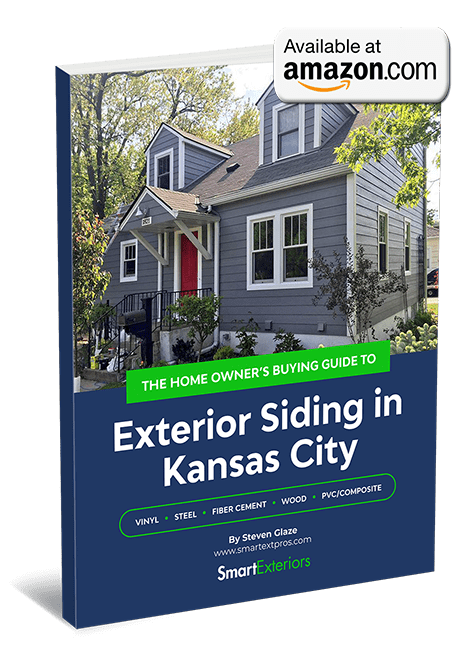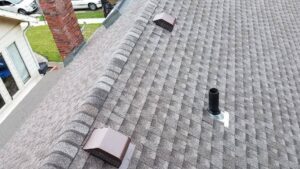
Is Malarkey Roofing Worth the Cost?
As a top-performing roofing brand, Malarkey is among the most popular choices for new roof systems across the country. They offer numerous benefits compared to
When you picture the perfect siding for your new home, what do you see? Are you envisioning a cozy cabin? A charming Victorian? A sleek modern home?
James Hardie siding could be the right choice for any of these homes. More than 10 million homeowners have chosen it for its combination of beauty, durability, timelessness, and versatility with any architectural trend or style.
This guide answers your questions about Hardie® siding and trim products. We’ll cover its benefits, weather resistance, installation, color and style options, cost, care, and more.
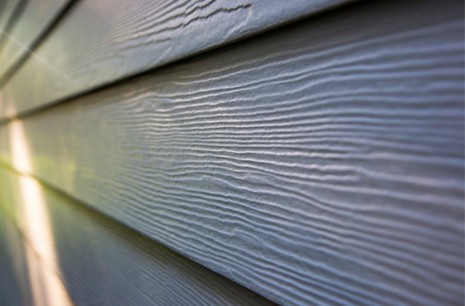
Fiber cement products from James Hardie are made of composite material, meaning they contain a combination of sand, cellulose fiber, Portland cement, and water. These bonded materials create an extremely durable surface for the exterior of your home.
One of the main benefits of Hardie siding and trim is that these products are designed to last up to 50 years. They’re much heavier and longer-lasting than nearly all other products available to U.S. homeowners.
Hardie siding comes in a wide variety of colors and styles, so it’s easy to choose the ideal tone and look for your home. Even if you’re envisioning something very specific for your exterior, you’ll be able to find siding to suit your vision.
It’s also an eco-friendly and sustainable choice. Hardie products are manufactured with recycled water and exceptionally heavy-duty materials. This contributes to long-term environmental stability and minimizes the need to source scarce materials like hardwood.
Fire resistance is something else to keep in mind. Hardie siding has a Class A fire resistance rating, which is the highest possible rating. It’s completely non-combustible and won’t ignite from exposure to the extreme heat of a house fire.
When you’re deciding whether Hardie siding is right for your home, consider this: A lot could happen in the coming decades. James Hardie backs its products with a 30-year limited warranty. Choose a certified installer (like Smart Exteriors) to ensure your siding is installed correctly and keep your warranty intact.
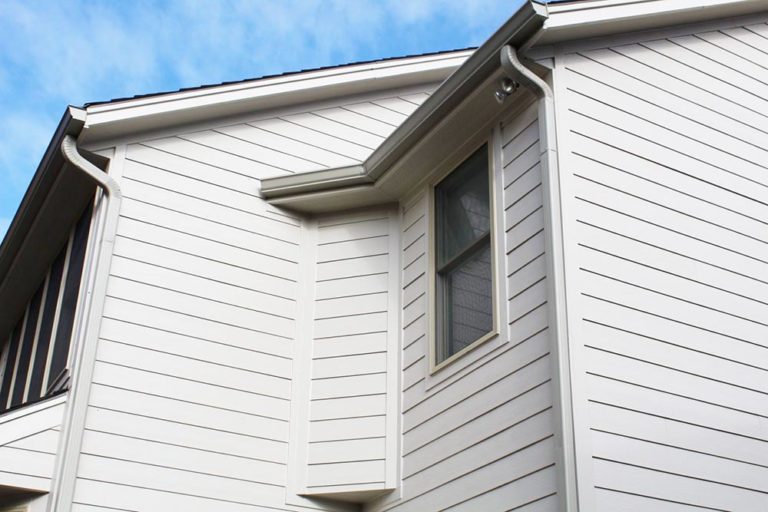
Kansas City weather is notoriously unpredictable. One morning it could be sunny and pleasant and by afternoon, you’re battling a windstorm with pounding rain. Your siding bears the brunt of the weather.
When properly installed with the Hardie™ Weather Barrier, Hardie siding forms a protective barrier over your home. It’s five times thicker than vinyl siding and doesn’t warp or twist in the wind like other types of siding.
It’s also more than just siding. Use the Hardie® Zone System to ensure you select the perfect siding for your area of the country, with built-in strengthening just for your zone.
In Kansas City, HZ5 is the best choice. Your HZ5-zone Hardie siding withstands hot, muggy summers and the constant risk of high-velocity winds. It also resists Kansas City’s levels of ice, snow, and freezing winter temperatures.
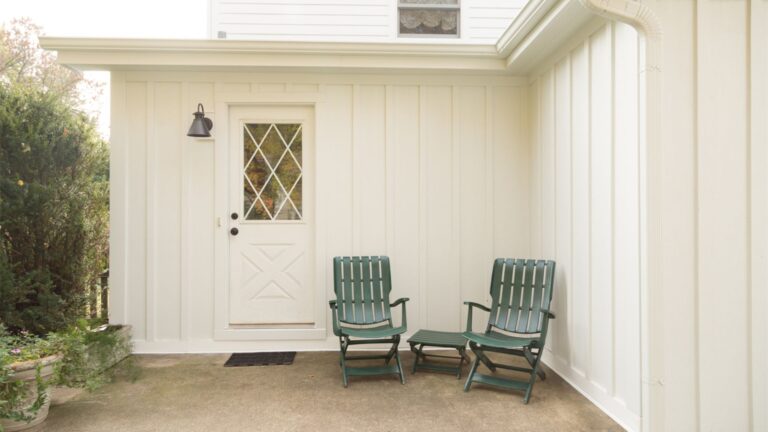
Let’s walk through the steps you’ll experience when it’s time to install your new siding.
The process begins with a personalized consultation. You’ll share your vision for your home’s exterior. Which color and style will suit your tastes? Which trim would add the perfect touch? What are your needs for the timeline, budget, and other details? This is your opportunity to get the project off to a great start.
Your installer orders your Hardie siding and trim to your specifications. The most popular colors of Hardie® Plank and other products will arrive quickly. Specialty colors and selections may take more time. Work with your certified installer to arrange your schedule.
Every home requires preparation for a perfect fit. The installers may inspect your exterior, remove old materials, scrape off caulking, and make repairs. Windows and doors are securely wrapped.
Now you’re ready for the application of Hardie Weather Barrier, which envelops your home in a protective material. This non-perforated and non-woven barrier provides moisture control between your siding and your home’s structure.
Next, your installers carefully measure and cut your siding. Hardie siding is very thick and sturdy, so it takes a multi-person crew with special installation equipment to ensure every board is cut and installed with precision.
The finishing step ensures everything is watertight, properly fitted, and polished to meet your expectations. Caulk and sealants are applied in the right spots and any final painting and finishing work is completed.
Finally, your installation crew conducts a final inspection to ensure everything is in place. Any excess materials are removed from your property and the installers use a magnetic roller and visual inspection to collect any stray nails or materials. There’s no need to worry about cleanup because it’s part of the process for any Elite Preferred installer.
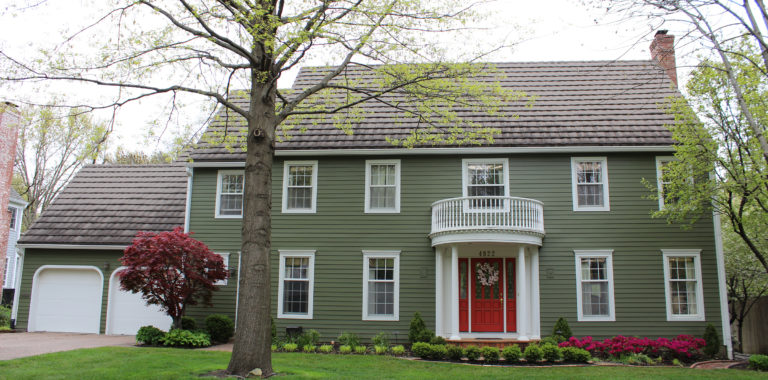
Choosing your siding color and style is an exciting part of the process. To make it easier, here’s a quick summary of your options.
Hardie® Plank is a traditional lap style with a smooth horizontal flow. Opt for a smooth look, a soft texture, or a woodgrain look that’s very similar to cedar.
Hardie® Shingle gives the appearance of shingles without wear or ongoing replacement. Select this option if you want a charming look with either in-line or staggered shingles.
Hardie® Panel is installed vertically for a smooth, stucco, or farmhouse look. This is a great choice for the board and batten-style homes that have become so popular.
Hardie® Artisan Siding is dimensional and thick, giving your home an added layer of customized style. Wrap your home in shiplap, V-groove, or square channel artisan siding.
Hardie® Trim and Hardie® Soffit finish off your home and help you meet codes for ventilation. Choose from smooth or rustic style trim and select vented or non-vented soffit boards.
You have a rainbow of color options with Hardie siding. Which suits your home?
Arctic White is a balanced white with just enough gray-tan undertone to keep your home looking crisp.
Light tones like Cobble Stone, Navajo Beige, and Pearl Gray give a hint of color without being too dramatic.
Midtones including Aged Pewter, Timber Bark, Khanki Brown, and Gray Slate offer a deep but soft look.
The darker colors give any house a sense of grandeur and sophistication, including Iron Gray and Rich Espresso.
There’s nothing else like Hardie® siding in Countrylane Red, a rich crimson evoking a charming country home.
If you love blue hues, try Bombay Blue, Light Mist, Evening Blue, or Deep Ocean.
More Color Options
This is just a sampling of the basic Hardie siding options. Choose from more than 700 colors in The Dream Collection™ with pastels, vibrant colors, and an array of earth tones.
Every color in the Hardie palette is rich and long-lasting due to the company’s color system called ColorPlus® Technology. Color is baked into the boards in a finishing process that ensures superior sun, ultraviolet, and weather resistance.
As you choose your color, it helps to see your color options on real homes in Kansas City. Take a look at a gallery of siding design options or browse colors and styles.
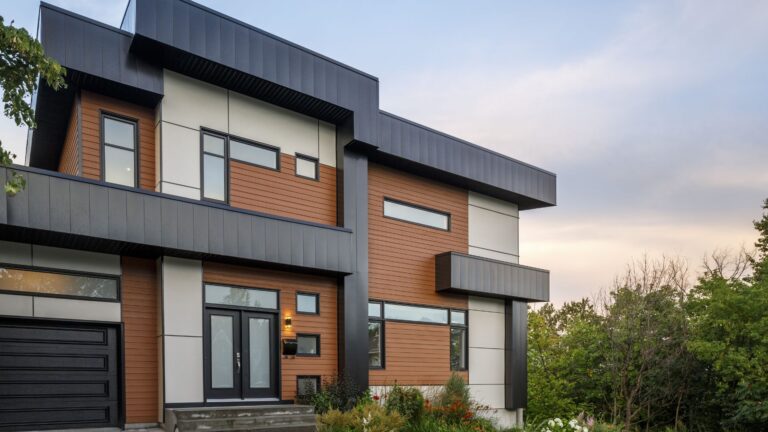
Perhaps you’ve considered vinyl, aluminum, or polymer siding in addition to looking at Hardie siding. Here are some comparison points between the most popular types of siding available today.
Insulated vinyl siding includes a rigid foam layer. Polyvinyl chloride (PVC) makes it warp- and rot-resistant. It’s more durable than standard vinyl.
It also has a high R-value, which is the level of protection from temperature fluctuation. Its total cost is usually higher than basic vinyl and lower than the highest-quality fiber cement siding.
However, insulated vinyl can warp and peel in the high heat of a house fire. It’s also more prone to improper installation, giving a low-quality appearance without the professional touch of a certified installer.
New advances in aluminum siding make it more durable and stylish than the aluminum of the past. It’s smooth, affordable, and long-lasting enough to get 30 to 40 years of home protection.
The main downsides are the appearance and risk of damage. From the curb, it will be apparent that you have aluminum siding and even the best aluminum siding can be dented by hail storms or high winds.
Polymer siding is constructed of polypropylene resin, a fire-resistant and damage-resistant material. Moisture and pests won’t usually harm it, but it can be surprisingly prone to scratches and dents.
It’s much more expensive than many other types of siding, even twice the cost. However, it’s an environmentally friendly and long-lasting choice, so many consider it superior to vinyl or aluminum siding.
Hardie siding has many benefits compared to its alternatives. It’s much more damage-resistant than other types, plus it’s exceptionally fire-resistant and will retain its vibrant color over the years.
With proper installation, Hardie siding has a high-end look due to its tough materials and thick design. Whether your visitors stand at the curb or go in for an up-close look, they’ll see high-quality siding.
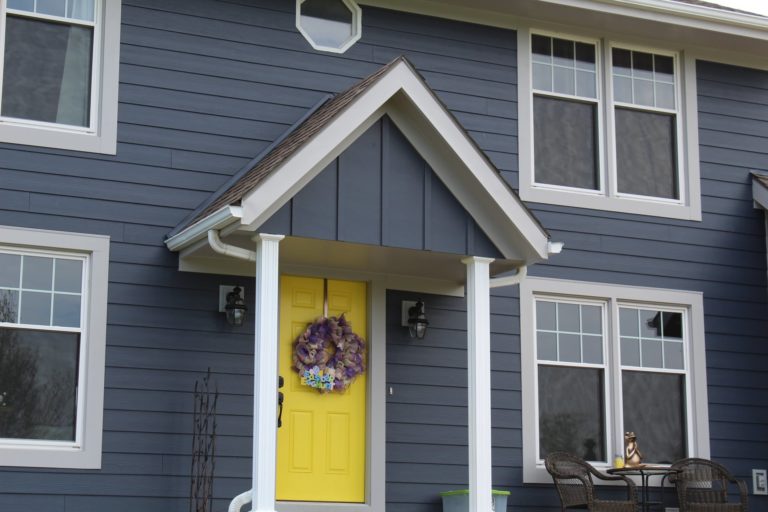
The saying, “You get what you pay for” is true about siding. Low-cost siding is usually lower quality and less durable, not to mention less attractive. Poor installation also impacts the appearance and weather resistance.
Many variables affect the total cost. Here are the key factors to keep in mind as you build your budget.
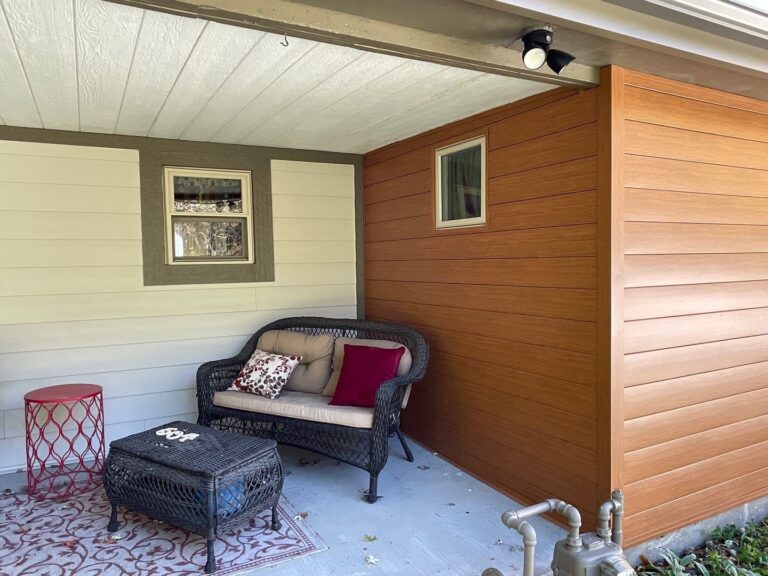
Your siding choice impacts your family’s safety. Because Hardie siding is a strong composite fiber cement material, it helps protect your home from fires and other extreme conditions.
How does it provide fire resistance? The answer comes down to science. Fiber cement siding is completely non-combustible and can’t burst into flames during a house fire.
While the risk of fire is scary, the risk of pest damage is much higher for the average homeowner. Woodpeckers, rodents, and other pests damage materials that can’t handle the impact.
Termites alone cause more than $5 billion in property damage every year. While wood siding is very vulnerable to termite and woodpecker damage, Hardie siding stands up to woodpeckers, termites, and other creatures trying to chip away at your home.
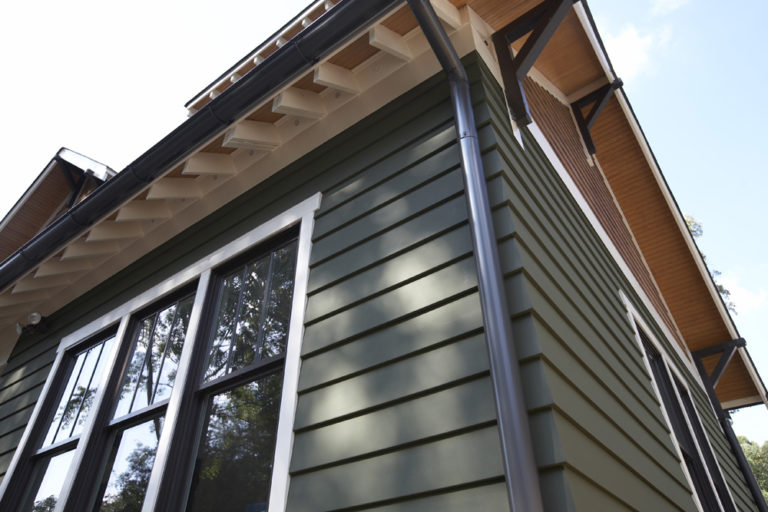
If you go with Hardie siding, here’s how to properly clean and care for it. The good news is that this siding requires very little ongoing maintenance.
Gently wash it just one or two times per year. The manufacturer doesn’t recommend high-pressure power washing, so use low-pressure settings or a garden hose. Don’t use harsh chemical cleansers. Water will clean your siding.
Use sand or gravel around your siding rather than salt or chemical ice removers. Prevent trees and shrubs from scraping against your siding.
Inspect it periodically to look for wear and tear. Contact a certified installer for any siding repairs or updates.
You’ll find that Hardie siding comes with easier care and maintenance than most other siding options. Here’s a checklist of maintenance tasks for other types of siding.
To preserve your warranty, maintain your insurance, and provide safety, don’t leave siding in place beyond its manufacturer-recommended lifespan. For most types of vinyl and aluminum siding, this is around 10 to 30 years.
Insulated vinyl siding may last up to 40 years. Hardwood can last many years unless it succumbs to ever-present pest and weather damage. Hardie siding lasts up to 50 years.
Your siding choice is as unique as your home. We hope you found this guide useful in learning how to select, understand, and care for your home’s new exterior.
As a James Hardie Elite Preferred Contractor, you can trust that Smart Exteriors’ work will be top-notch. Learn more about our Hardie siding installation today!

As a top-performing roofing brand, Malarkey is among the most popular choices for new roof systems across the country. They offer numerous benefits compared to
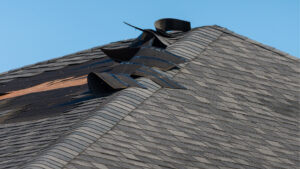
Kansas City is no stranger to heavy rain, high winds, sleet and snow—all of which can harm your roof and leave it vulnerable to leaks
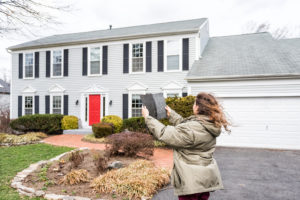
Your roof does a lot of hard work to protect your home from weather, moisture and debris. And when it’s doing its job, you probably
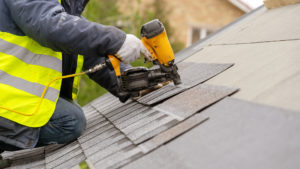
Getting a new roof can be an exciting process for homeowners, but also one that you may not be that familiar with. And you want
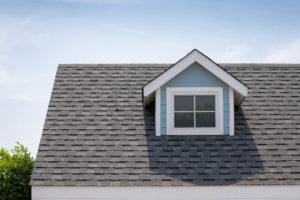
Getting ready for a new roof? Before you invest in this significant home renovation process, you want to make sure you have the right team
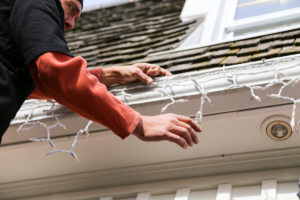
With the holiday season in full bloom, you may plan to decorate your home with a festive display. Whether you want a spooky Halloween, a
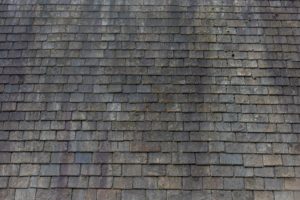
You’ve pulled into your driveway, glanced up at your roof, and discovered—to your dismay!—that it looks discolored. Ugly, black streaks are marring its appearance. And
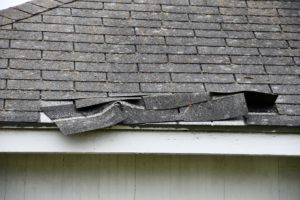
You already know your roof plays an important role in protecting your home. However, many homeowners don’t think much about their roofs until something goes
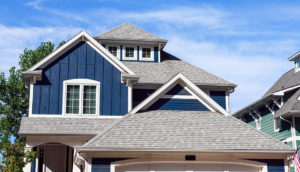
A high-quality, well-installed roof will provide your home with years of protection, while also improving its curb appeal. However, once your roof replacement is scheduled

We offer only the highest quality, best performing product lines in the industry.

We utilize some of the “greenest” products in the business and are proud of it!

With over 20 years as the premier company in Kansas City, our installation staff is highly trained and skilled.

We live and work in the communities we serve. We wouldn’t have it any other way!
Experience the best in expert James Hardie Siding installation services that rely on the latest in award-winning
products that are both affordable and built to last.

With over 20 years of James Hardie installation experience in Kansas City, we pride ourselves on doing the job right every time.

Our estimates include everything. Labor, materials, taxes, insurance.... all included.

Since we use superior product lines that offer the industry’s best warranties, we can pass that promise on to you.

We offer financing options to make the products we sell and install affordable for any budget.
Smart Exteriors is Kansas City’s leading expert on siding. From materials such as vinyl, steel, PVC and fiber cement siding, to popular siding brands like James Hardie, LP Smart Siding and Celect siding, we know which types are best for Kansas City and for your home and budget. After you read our guide, you will become an educated buyer and will be ensured to get the best possible outcome for your home and budget.
